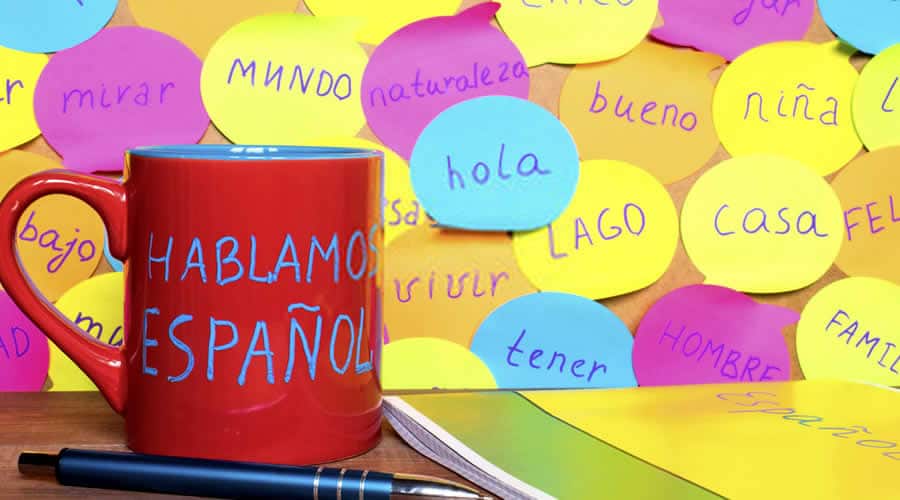Various researches have been done to prove the positive impact of language learning. As a result, the scientist now claims that language education can:
- Improve your memory skills;
- Help to build new neural connections and brain cells;
- Develop your creativity;
- Prevent brain aging and related diseases.
These are not the only positive effects that learning new languages can bring to your life. That is why more and more people invest in language learning: they buy books, participate in speaking clubs, take private lessons. But what is common for all learners in the 21 century is — online resources; more than 90 percent of people trying to master a new language use foreign language applications!
In this technology era, we have free access to worldwide communication, information, and learning techniques. We can find language teacher app with AI mechanisms or with native speaker tutors, we can learn languages for career improvement or just for fun, we can study day and night or spend only 5 mins daily — it all depends on us.
But let’s deal with online education and choose the best language learning apps you can use for exploring new languages!
Contents
Top 7 Mobile Apps to Learn a Foreign Language:
1. Duolingo
For: long-term learning and learners of all levels.
This service is a real catch for those who are good with long term commitments and want not just learn new words but also structurize the sentences according to grammar rules, check the pronunciation by repeating the sentences, translate and create own examples by writing them down.
You can choose one of 23 languages and learn them at your own pace. What is more, the App itself is brilliantly designed, so you receive not only verbal but also visual and audial material, which you can study for free.
Before the start, you can take the quick level test, not to repeat the already learned information.
And what is even more appealing — as soon as you start your training, you will have 24/7 chatbot support to explain the errors and answer your topic-related questions.
2. Tiny Cards by Duolingo
For: memorizing vocabulary. Beginners/intermediate
Flashcard App is ready to help you to remember various words with a simple technique.
The Tiny Cards App is better when used as an additional resource for the extension of your vocabulary. Here you’ll find plenty of flashcards, collected by categories and levels. On one side of the card, you have the new word, by taping on it, the card turns to another side with translation, definition, or picture.
You can also listen to the right pronunciation and even create your own flashcards.
Tiny cards app is well-designed and popular not only in the USA but all over the world.
3. Busuu
For: goal-oriented students
This online service is perfect for people with plenty of goals and assignments. For those who have essay deadlines, dancing classes, professional writing workshops, and 2 different language courses almost at the same time.
Busuu app requires a level test and your learning aim-oriented questions. In this way, the program can offer you the best learning course to be the most productive. Busuu also tracks your performance and reminds you about daily tasks.
By the way, writers from various essay writing services from trusted company refer to Busuu as one of the most efficient ways to improve your linguistic skills. Last but not least feature of Busuu is that it can predict your way to success by calculating the time you spend on learning and reaching your goal.
4. Hello Talk
For: conversations, free form interactions. Intermediate/advanced
Hello Talk App creates a friendly online environment for cross-cultural communication. What’s more, it helps to blur your language barriers and develops your socializing skills.
This app is not for learning but practice. When you’re ready to experiment with a foreign language, HelloTalk provides an excellent opportunity for interaction with other speakers.
Download it, set the language, and find someone who is doing the same thing as you — learning!
With same learners as you are ( there are three options possible: both you and your pen-friend master the same language; one of you is a native speaker; both of you are native speakers, but want to learn the language opposite), you can start a conversation and complete different tasks together.
5. Drops
For: short attention spans. Beginner/intermediate
Just five minutes a day, no need to write. Here you don’t have that school feeling with essay writing and grammar check.
You can choose from 19 languages and lessons will walk you through 120-word buckets covering food, drinks, numbers, and hotel terms. So, the app is a perfect place to study new vocabulary.
The app focuses on clean illustrations, all in white, set against solid-colored backdrops. Whether you’re matching pictures to their translations, unscrambling letters to practice spelling, or swiping across a grid of letters to unearth the word that matches the picture, the exercises feel like quick games rather than classroom worksheets.
6. Language learning with Netflix
For: movie fans and curious people
LLN is not technically an App yet and works like Netflix and Chrome extension. Depending on the language you work on, watch Netflix movies using hints, translations, and explanations for dialect, slang, and idioms.
However, to use it, you should have a Netflix subscription, not to be accused of plagiarism or piracy.
7. Memrise
For: learning to speak casually in a new language
App with a friendly interface, allowing you to learn a new language with no hurry. Here you can use flashcards, speaking exercises, and games. Lessons are divided according to the topics and your knowledge level. You can also unlock every new lesson as soon as you finish the previous.
The app also helps you spot patterns in the language to make it easier to improve your skills.
I hope, this article will help you to improve your language skills. And remember: practice makes perfect, so never stop learning!
Good luck!


